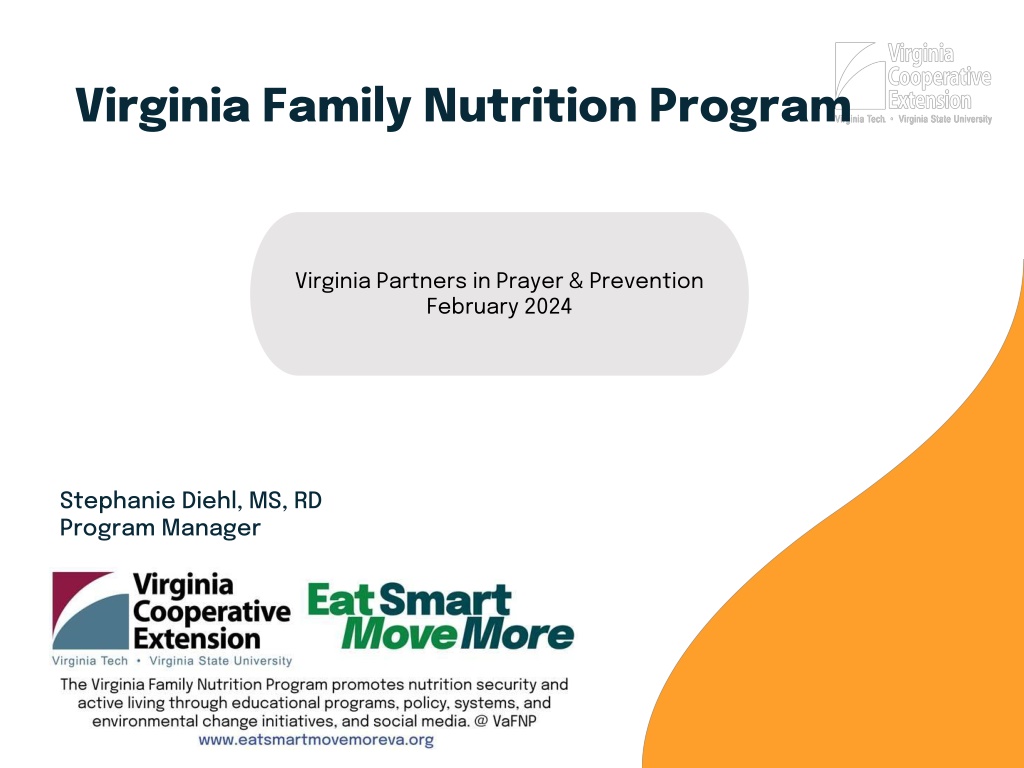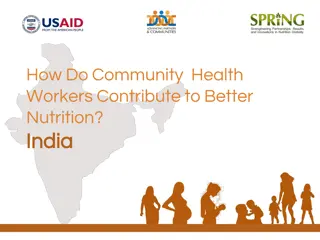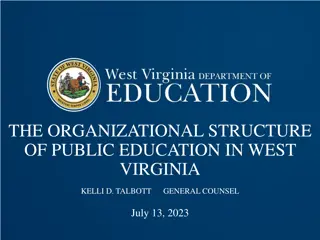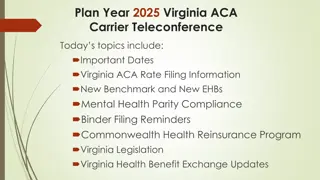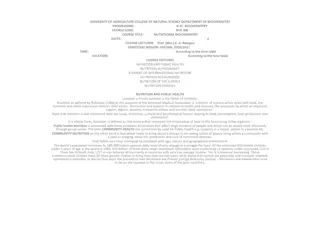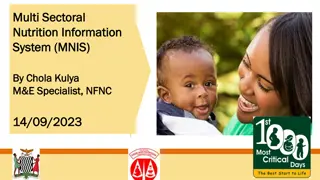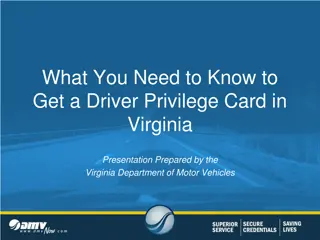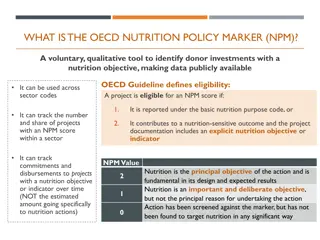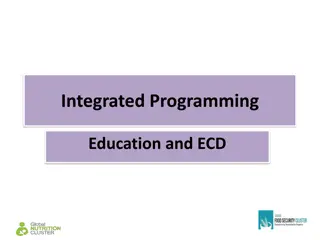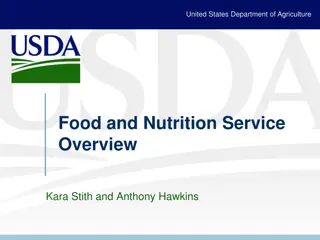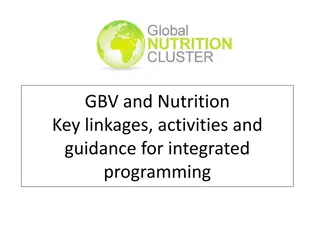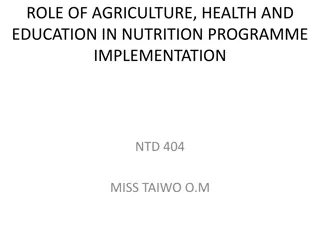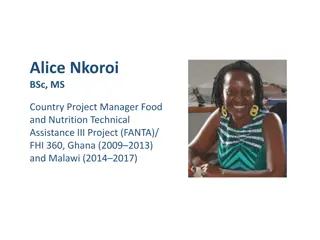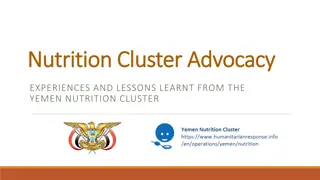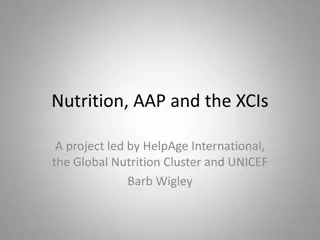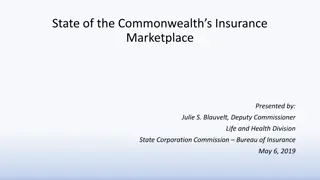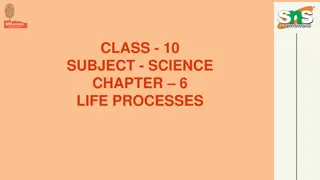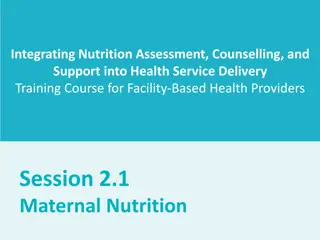Virginia Family Nutrition Program
The Virginia Family Nutrition Program focuses on teaching limited-resource households how to make healthier food choices and manage available food resources for optimal health and growth. Programs cover basic nutrition, physical activity, safe food handling, and thrifty food shopping. Coordinated through Virginia Tech and Virginia Cooperative Extension, the program includes SNAP-Ed and EFNEP initiatives funded by USDA. Staffing includes peer educators, SNAP-Ed agents, and a focus on policy, systems, and environmental changes. Approaches include individual and group-based nutrition education for adults and youth.
Download Presentation

Please find below an Image/Link to download the presentation.
The content on the website is provided AS IS for your information and personal use only. It may not be sold, licensed, or shared on other websites without obtaining consent from the author. Download presentation by click this link. If you encounter any issues during the download, it is possible that the publisher has removed the file from their server.
E N D
Presentation Transcript
Virginia Family Nutrition Program Virginia Partners in Prayer & Prevention February 2024 Stephanie Diehl, MS, RD Program Manager
Mission The Virginia Family Nutrition Program s mission is to teach limited-resource households how to make healthier food choices and become better managers of available food resources for optimal health and growth. Our programs focus on basic nutrition, physical activity, safe food handling, and thrifty food shopping. The Family Nutrition Program is offered through Virginia Cooperative Extension, an educational outreach partnership between Virginia Tech and Virginia State University.
Virginia Family Nutrition Program Supplemental Nutrition Assistance Program Education (SNAP-Ed) Expanded Food and Nutrition Education Program (EFNEP) Coordinated through Virginia Tech & Virginia Cooperative Extension State employees housed in HNFE in CALS at Virginia Tech Field staff located in Extension offices, food banks, and school board offices around the state
EFNEP & SNAP-Ed SNAP SNAP- -Ed Ed EFNEP EFNEP $8,961,929 (FY2024) $1,760,922 (FY2024) Launched 30 years ago Launched 50 years+ ago Funded through USDA Food & Nutrition Service (FNS), then Virginia DSS SNAP Division Funded through USDA National Institute for Food and Agriculture (NIFA), Smith-Lever Act
Staffing Peer Educators (Program Assistants) (49) Direct education Not expected to have a nutrition background SNAP-Ed Agents (10) Volunteer-based nutrition education primarily school teachers (50%) Policy, systems, and environmental (PSE) change (50%) MS-degree required in nutrition or health Social Media Coordinator (1)
Staffing PSE Coordinator and Assistant Coordinators (3) Policy, systems, and environmental change at state level State Faculty & State/District Staff (13) Curricula design, management and distribution of resources Program and fiscal integrity Leadership Team (Area Coordinators, Program Manager, Trainer) (7) Program integrity and support Partnerships
Approaches Individual or Group-Based Nutrition Education Adults Youth Policy, Systems, and Environmental Change (PSE) Initiatives Social Media
Policy, Systems, Environmental (PSE) Change Work Food Pantries, Food Banks Online education and training for food pantries to create neighbor- centered food pantries that promote dignity Technical assistance on procuring more nutritious options Promotion of nutritious foods, nutrition education Farmers Markets that Accept SNAP SNAP at Farmers Market Environmental Assessment to promote SNAP redemption at farmers markets
PSE Change Work SNAP-Authorized Food Retailers Use of choice architecture to increase sales of low-cost, nutritious options School Wellness Development of local (school) wellness policies Classroom challenges to promote class-level physical activity and healthy eating Employee wellness Community Gardens
Who We Work With Youth Schools with 50% or more of students eligible for free or reduced (F/R) school meals Adults 200% of federal poverty level income Categorical eligibility (SNAP-Ed): SNAP participation Public housing Food banks and food pantries Referrals from SNAP, TANF, and WIC offices PSEs require justification to ensure a high proportion of SNAP- eligible audiences
Social Media Coordinated social media messages offered on the eatsmartmovemoreva.org website and numerous social media platforms help complement direct education and PSE change efforts by reinforcing key nutrition and physical activity messages. By using multiple channels of communication, there are more opportunities for multiple exposures to key messages.
How To Work With US Volunteer to: teach nutrition education conduct food demonstrations provide education at a retail partner staff an education booth at the farmers market teach food preparation and more!!!
Thank you! Questions?
